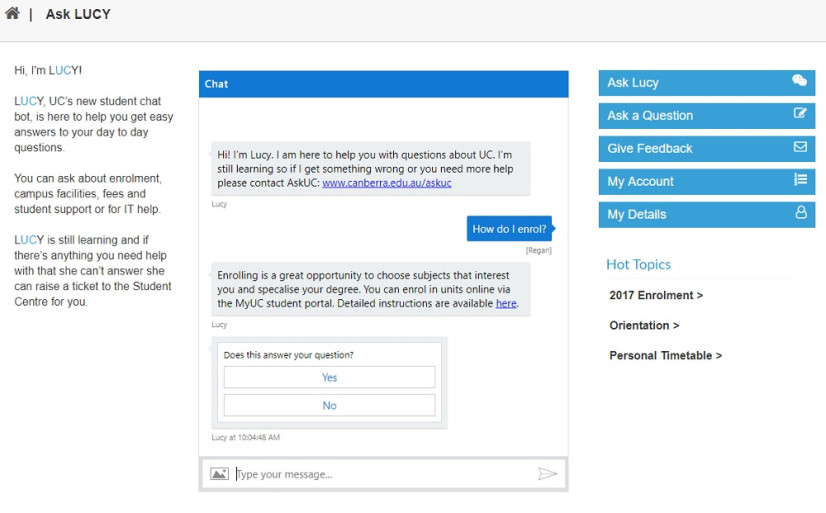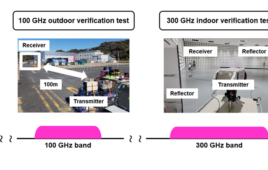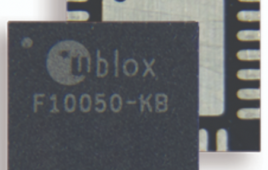Relying on technology for information has become commonplace. We expect our smartphones and computers to bring us the information we ask for, whether it be ordering food, finding insurance, or asking a basic question; smartphones have our back. Due to this reliance, Staffordshire University deployed a chatbot app called Beacon, which was available for download to its 15,000 students.
Using the app is quite simple, students can type or voice activate commands to find professors, locate classrooms, double check what time a lecture begins, and find answers to hundreds of common questions regarding the university.

[Image Source: Staffordshire University]
Using Beacon, students can request information and get a quick response on their smartphone. Developed in collaboration with cloud services provider ANS Group, the app holds a number of possibilities for the use of chatbots in various settings.
Pro Vice Chancellor for Student Experience Sue Reece says, “The new app will help us to build positive relationships with our students and even flag up those who may need additional support, so that we can better cater to their needs. Ultimately, we want Beacon to help us to provide students with the best possible experience.”
Staffordshire University isn’t the first school to implement chatbots. The University of Canberra in Australia instituted several digital assistants for both students and staff in 2017. Warmly regarded as Bruce, the chatbot scans content from the university’s internet to respond to staff questions about IT support, faculties, pay, and vacation.
The student bot known as Lucy, follows suit with Bruce, scanning internal websites for answers to questions including schedules, parking, and support services.

[Image Source: University of Canberra]
Going forward, Staffordshire is optimistic that Beacon will be the go-to source for students. With that said, not everyone had kind things to say regarding Beacon.
One user states, “Just not even remotely useful, end up using the staff’s uni site to get the information I want half the time. A very well built FAQ webpage could replace this.”
This is one of the problems chatbots may face. They just aren’t as advanced as information services such as Google Assistant and Alexa. In smaller university settings, having a chatbot that delivers all the information students may need is a bit of a daunting task, one that doesn’t always work out.
Even with harsh criticism, Staffordshire is dedicated to making sure chatbots become an integrated part of their future. Andrew Proctor, director of digital services, says, “Over time, we expect that students will have more daily interactions with Beacon than anyone else at the university, so it will be one of our most important tools.” Proctor goes on to say, “Going to university can be stressful and is often the first time a teenager will move out of their home to live somewhere new. Beacon is there to help them; it’s not just a Q&A bot. In Welcome Week, it can recommend societies [that] will help them make friends, and [it] will eventually guide new students toward services, if they need more support during the first few months. It will ask them how their lectures are going to ensure that if they are struggling, we can help them more quickly and in the best way.”




